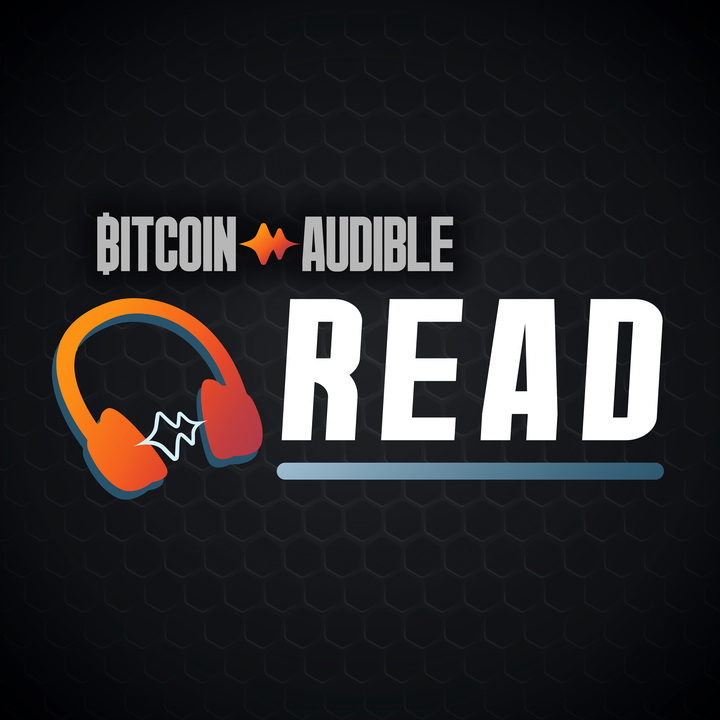Good morning, readers!
This week, we bring pressing news from Belarus, where the regime’s central bank is preparing to launch its central bank digital currency in close collaboration with Russia by the end of 2026. Since rigging the 2020 election, President Alexander Lukashenko has ruled through brute force and used financial repression to crush civil society and political opposition. A Central Bank Digital Currency (CBDC) in the hands of such an authoritarian leader is a recipe for greater control over all aspects of financial activity.
Meanwhile, Russia is planning to further restrict Bitcoin access for ordinary citizens. This time, the Central Bank of Russia and the Ministry of Finance announced joint plans to launch a state-regulated cryptocurrency exchange available exclusively to “super-qualified investors.” Access would be limited to those meeting previously defined thresholds of $1.2 million in assets or an annual income above $580,000. This is a blatant attempt by the Kremlin to dampen the accessibility and impact of Bitcoin for those who need it most.
In freedom tech news, we spotlight Samiz. This new tool allows users to create a Bluetooth mesh network over nostr, allowing users’ messages and posts to pass through nearby devices on the network even while offline. When a post reaches someone with an Internet connection, it is broadcast across the wider network. While early in development, Mesh networks like Samiz hold the potential to disseminate information posted by activists and human rights defenders even when authoritarian regimes in countries like Pakistan, Venezuela, or Burma try to restrict communications and the Internet.
We end with a reading of our very own Financial Freedom Report #67 on the Bitcoin Audible podcast, where host Guy Swann reads the latest news on plunging currencies, CBDCs, and new Bitcoin freedom tools. We encourage our readers to give it a listen and stay tuned for future readings of HRF’s Financial Freedom Report on Bitcoin Audible. We also include an interview with HRF’s global bitcoin adoption lead, Femi Longe, who shares insights on Bitcoin’s growing role as freedom money for those who need it most.
Now, let’s see what’s in store this week.

Global News
Belarus | Launching CBDC in Late 2026
Belarus is preparing to launch its CBDC, the digital ruble, into public circulation by late 2026. Roman Golovchenko, the chairman of the National Bank of the Republic of Belarus (and former prime minister), made the regime’s intent clear: “For the state, it is very important to be able to trace how digital money moves along the entire chain.” He added that Belarus was “closely cooperating with Russia regarding the development of the CBDC.” The level of surveillance and central control that the digital ruble would embed into Belarus’s financial system would pose existential threats to what remains of civil society in the country. Since stealing the 2020 election, Belarusian President Alexander Lukashenko has ruled through sheer force, detaining over 35,000 people, labeling dissidents and journalists as “extremists,” and freezing the bank accounts of those who challenge his authority. In this context, a CBDC would not be a modern financial tool — it would be a means of instant oppression, granting the regime real-time insight into every transaction and the ability to act on it directly.
Russia | Proposes Digital Asset Exchange Exclusively for Wealthy Investors
A month after proposing a framework that would restrict the trading of Bitcoin to only the country’s wealthiest individuals (Russians with over $1.2 million in assets or an annual income above $580,000), Russia’s Ministry of Finance and Central Bank have announced plans to launch a government-regulated cryptocurrency exchange available exclusively to “super-qualified investors.” Under the plan, only citizens meeting the previously stated wealth and income thresholds (which may be subject to change) would be allowed to trade digital assets on the platform. This would further entrench financial privilege for Russian oligarchs while cutting ordinary Russians off from alternative financial tools and the financial freedom they offer. Finance Minister Anton Siluanov claims this will bring digital asset operations “out of the shadows,” but in reality, it suppresses grassroots financial autonomy while exerting state control over who can access freedom money.
Cuba | Ecash Brings Offline Bitcoin Payments to Island Nation in the Dark
As daily blackouts and internet outages continue across Cuba, a new development is helping Cubans achieve financial freedom: Cashu ecash. Cashu is an ecash protocol — a form of digital cash backed by Bitcoin that enables private, everyday payments that can also be done offline — a powerful feature for Cubans experiencing up to 20-hour daily blackouts. However, ecash users must trust mints (servers operated by individuals or groups that issue and redeem ecash tokens) not to disappear with user funds. To leverage this freedom tech to its fullest, the Cuban Bitcoin community launched its own ecash mint, mint.cubabitcoin.org. This minimizes trust requirements for Cubans to transact with ecash and increases its accessibility by running the mint locally. Cuba Bitcoin also released a dedicated ecash resource page, helping expand accessibility to freedom through financial education. For an island nation where the currency has lost more than 90% of its value, citizens remain locked out of their savings, and remittances are often hijacked by the regime, tools like ecash empower Cubans to preserve their financial privacy, exchange value freely, and resist the financial repression that has left so many impoverished.
Zambia | Introduces Cyber Law to Track and Intercept Digital Communications
Zambia’s government passed two new cyber laws granting officials sweeping powers to track and intercept digital communications while increasing surveillance over Zambians’ online activity. Officials insist it will help combat cybercrime. Really, it gives the president absolute control over the direction of a new surveillance agency — a powerful tool to crush dissent. This follows earlier plans to restrict the use of foreign currency in the economy to fight inflation, which effectively trapped Zambians in a financial system centered around the volatile “kwacha” currency (which reached a record low earlier this year with inflation above 16%). For activists, journalists, and everyday Zambians, the new laws over online activity threaten the ability to organize and speak freely while potentially hampering access to freedom tech.
India | Central Bank Deputy Governor Praises CBDC Capabilities
At the Bharat Inclusion Summit in Bengaluru, India, the deputy governor of the Reserve Bank of India (RBI), Rabi Sankar, declared, “I have so far not seen any use case that potentially can solve the problem of cross-border money transfer; only CBDC has the ability to solve it.” Yet — seemingly unbeknownst to Sankar, Bitcoin has served as an effective remittance tool for more than a decade at low cost, fast speed, and with no central point of control. Sankar’s remarks follow a growing push to normalize state-controlled, surveillance-based digital money as a natural progression of currency. The RBI’s digital rupee CBDC, currently in pilot phase, is quickly growing into one of the most advanced CBDCs on the planet. It is being embedded into the government’s UPI payment system and offered through existing financial institutions and platforms. Decentralized alternatives like Bitcoin can achieve financial inclusion and payment efficiency too — but without sacrificing privacy, autonomy, or basic rights over to the state.
Tanzania | Opposition Party Excluded From Election Amid Financial Repression
Last week, the Tanzanian regime banned the use of foreign currency in transactions, leaving Tanzanians to rely solely on the rapidly depreciating Tanzanian shilling. Now, Tanzania’s ruling party has taken a decisive step to eliminate political opposition ahead of October’s general elections by barring the CHADEMA party from participation under the pretense of treason against their party leader, Tundu Lissu. Law enforcement arrested Lissu at a public rally where he was calling for electoral reforms. This political repression is not happening in isolation. Last year, the Tanzanian regime blocked access to X, detained hundreds of opposition members, and disappeared dissidents. These developments suggest a broader strategy to silence criticism and electoral competition through arrests, censorship, and economic coercion.
Recommended Content
Bitcoin Beyond Capital: Freedom Money for the Global South with Femi Longe
In this interview at the 2025 MIT Bitcoin Expo, journalist Frank Corva speaks with Femi Longe, HRF’s global bitcoin lead, who shares insights on Bitcoin’s growing role as freedom money for those living under authoritarian regimes. The conversation highlights the importance of building Bitcoin solutions that center on the specific problems faced by communities rather than the technology itself. Longe commends projects like Tando in Kenya and Bit.Spenda in Ghana, which integrate Bitcoin and Lightning into familiar financial channels, making Bitcoin more practical and accessible for everyday payments and saving. You can watch the interview here and catch the livestreams of the full 2025 MIT Bitcoin Expo here.

Bitcoin and Freedom Tech News
Samiz | Create a Bluetooth Mesh Network with Nostr
Samiz, an app for creating a Bluetooth mesh network over nostr, is officially available for testing. Mesh networks, where interconnected computers relay data to one another, can provide offline access to nostr if enough users participate. For example, when an individual is offline but has Samiz enabled, their device can connect to other nearby devices through Bluetooth, allowing nostr messages to hop locally from phone to phone until reaching someone with internet access, who can then broadcast the message to the wider nostr network. Mesh networks like this hold powerful implications for activists and communities facing censorship, Internet shutdowns, or surveillance. In places with restricted finances and organization, Samiz, while early in development, can potentially offer a way to distribute information through nostr without relying on infrastructure that authoritarian regimes can shut down.
Spark | New Bitcoin Payments Protocol Now Live
Lightspark, a company building on the Bitcoin Lightning Network, officially released Spark, a new payment protocol built on Bitcoin to make transactions faster, cheaper, and more privacy-protecting. Spark leverages a technology called statechains to enable self-custodial and off-chain Bitcoin transactions for users by transferring the private keys associated with their bitcoin rather than signing and sending a transaction with said keys. Spark also supports stablecoins (digital tokens pegged to fiat currency) and allows users to receive payments while offline. While these are promising developments, in its current state, Spark is not completely trustless; therefore, it is advisable only to hold a small balance of funds on the protocol as this new payment technology gets off the ground. You can learn more about Spark here.
Boltz | Now Supports Nostr Zaps
Boltz, a non-custodial bridge for swapping between different Bitcoin layers, released a new feature called Zap Swaps, enabling users to make Lightning payments as low as 21 satoshis (small units of bitcoin). This feature enables bitcoin microtransactions like nostr zaps, which are use cases that previously required workaround solutions. With the release, users of Boltz-powered Bitcoin wallets like Misty Breez can now leverage their wallets for zaps on nostr. These small, uncensorable bitcoin payments are a powerful tool for supporting activists, journalists, and dissidents — offering a permissionless way to support free speech and financial freedom worldwide. HRF is pleased to see this past HRF grantee add support for the latest freedom tech features.
Coinswap | Adds Support for Coin Selection
Coinswap, an in-development protocol that enables users to privately swap Bitcoin with one another, added support for coin selection, boosting the protocol’s privacy capabilities. Coin selection allows Bitcoin users to choose which of their unspent transaction outputs (UTXOs) to spend, giving them granular control over their transactions and the information they choose to reveal. For activists, journalists, and anyone operating under financial surveillance and repression, this addition (when fully implemented and released) can strengthen Bitcoin’s ability to resist censorship and protect human rights. HRF’s first Bitcoin Development Fund (BDF) grant was to Coinswap, and we are glad to see the continued development of the protocol.
bitcoin++ | Upcoming Bitcoin Developer Conference
The next bitcoin++ conference, a global, bitcoin-only developer series organized by Bitcoin educator Lisa Neigut, will occur in Austin, Texas, from May 7 to 9, 2025. A diverse group of privacy advocates, developers, and freedom tech enthusiasts will convene to learn about the mempool (the queue of pending and unconfirmed transactions in a Bitcoin node). Attendees will learn how Bitcoin transactions are sorted into blocks, mempool policies, and how transactions move through time and space to reach the next block. These events offer an incredible opportunity to connect with the technical Bitcoin community, who are ultimately many of the figures building the freedom tools that are helping individuals preserve their rights and freedoms in the face of censorship. Get your tickets here.
OpenSats | Announces 11th Wave of Nostr Grants
OpenSats, a nonprofit organization supporting open-source software and projects, announced its 11th round of grants for nostr, a decentralized protocol that enables uncensorable communications. Two projects stand out for their potential impact on financial freedom and activism: HAMSTR, which enables nostr messaging over ham radio that keeps information and payments flowing in off-grid or censored environments, and Nostr Double Ratchet, which brings end-to-end encrypted private messaging to nostr clients, safeguarding activists from surveillance. These tools help dissidents stay connected, coordinate securely, and transact privately, making them powerful assets for those resisting authoritarian control. Read the full list of grants here.
Bitcoin Design Community | Organizes Designathon for Open-Source UX Designers
The Bitcoin Design Community is hosting its next Designathon between May 4 and 18, 2025, inviting designers of all levels and backgrounds to creatively explore ideas to advance Bitcoin’s user experience and interface. Unlike traditional hackathons, this event centers specifically on design, encouraging open collaboration on projects that improve usability, accessibility, and innovation in open-source Bitcoin tools. Participants can earn monetary prizes, rewards, and recognition for their work. Anyone can join or start a project. Learn more here.
Recommended Content
Plunging Currencies, CBDCs, and New Bitcoin Freedom Tools with Guy Swann
In this reading on the Bitcoin Audible podcast, host Guy Swan reads HRF’s Financial Freedom Report #67, offering listeners a front-row view into the latest developments in financial repression and resistance. He unpacks how collapsing currencies, rising inflation, and CBDC rollouts tighten state control in Turkey, Russia, and Nigeria. But he also highlights the tools for pushing back, from the first Stratum V2 mining pool to Cashu’s new Tap-to-Pay ecash feature. If you’re a reader of the Financial Freedom Report, we encourage you to check out the Bitcoin Audible podcast, where Guy Swan will be doing monthly readings of our newsletter. Listen to the full recording here.








